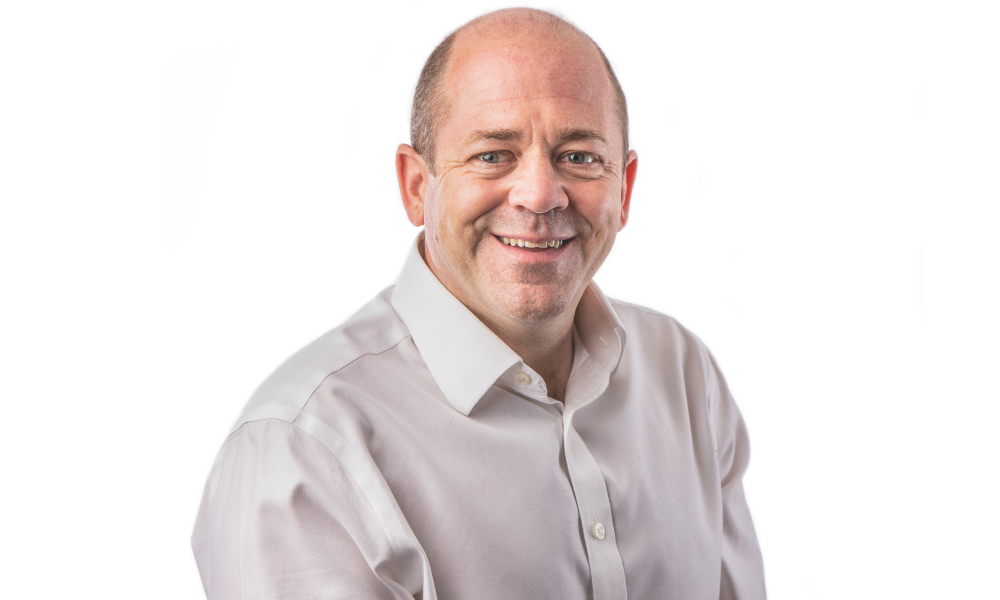CEO assures there will be a bounce back following mini budget chaos

As the government attempts to steer the economy through choppy waters following last month’s controversial mini budget, Mortgage Introducer has continued to sound out mortgage experts about its impact and ask whether the housing market can overcome the ongoing fallout, just as interest rates for average two- and five-year fixed deals climbed above 6% on Tuesday.
Meanwhile, the Bank of England yesterday warned of "a material risk to UK financial stability" as it ramped up its bond buying programme. This comes shortly after the money markets made it known that the BoE would likely go for a 100bps hike at its next policy meeting in November.
Barry Webb (pictured), CEO of Mortgage Saving Experts, has more than 20 years’ experience in the mortgage industry. Formerly a broker at a high street bank, he also served as an adverse packager and an underwriter before becoming a self-employed broker 16 years ago. He now heads the West Sussex-based company with a 17-strong team of brokers.
How do you think increasing the current 2.25% base rate to 3.25% will affect the housing sector for borrowers, lenders and brokers?
If the Bank of England (BoE) base rate increases to 3.25% from 2.25% then the market will no doubt slow a little - we have noticed the market doing that already since rates started to increase.
The increase will affect the first-time buyer (FTB) market, which subsequently slows the rest of the buyers in the marketplace. It affects borrowers on tracker rates and for people who are remortgaging, because as rates increase so do the monthly payments for those borrowers, which puts an even bigger squeeze on household incomes due to the rise in other costs, such as energy bills.
The increase in rates the banks are charging is not solely due to the rise of the BoE base rate, though. The cost of borrowing from mortgage funders has risen dramatically and keeps doing so because those costs have to be passed on to the customer.
As the market slows it means the lenders and brokers alike are able to catch up as the whole market has been under immense strain since the end of the first lockdown in 2020. It will be a welcome relief for brokers and lenders.
Read more: How will the mortgage market respond to 100bps hike?
Will a 100bps hike lead to a large swathe of the population simply giving up on buying a property?
There will always a market for buying property. As we have seen over history, the UK market for purchasing property has already remained strong, it just means it will slow down. The markets will always bounce back. We do however think the rate increases will lower again next year - not by much - but we think the rates lenders offer within the next 12 months will come back down to around 3.5% to 4.5%. They are currently sitting over 5% which we haven’t seen since 2007.
Don’t forget we are still in a historically low-rate market and have been since 2008, so rates are really only increasing back to levels seen in 2007/2008.
Will it result in house prices tumbling next year?
House prices will come down a little as we have already seen over the last month or two, but not dramatically because house prices usually increase over the longer term.
Read more: The other contributor to mortgage market madness
How do you think lenders will react to what could be the single biggest increase in the base rate since 1988? And by how much do you think mortgage rates will increase, given that they are already at least double in relation to the base rate?
Lenders will do what they always do - read the market and act responsibly for their customers and will try to keep rates as low as possible for as long as possible. However, as businesses they will not take the chance in losing money, so they may increase interest rates in line with the BoE base rate, but that is not a given. As I mentioned earlier, the cost of borrowing money from mortgage funders and other banks is rising, which is the main reason why interest rates are rising. It may be the largest base rate rise since 1988 but don’t let that frighten you. In 2008 we had rate reductions - in November 2008 by 1.5% and then another reduction in December 2008 by a further 1%. It’s just the way the market goes, and it’s never permanent. We just need to buckle down and weather the storm as better things will always come again.
I think the Bank of England base rate will increase to around 4.5%, inflation will ease even more, thus putting less pressure on funding rates between lenders. The market will slow, meaning demand will go down in comparison to the last two years, which means the market will get back to some form of normality. Once the market slows and stabilises, rates will reduce and come down to a more manageable level, but they will not come down to 1.5% anytime soon - if ever.



